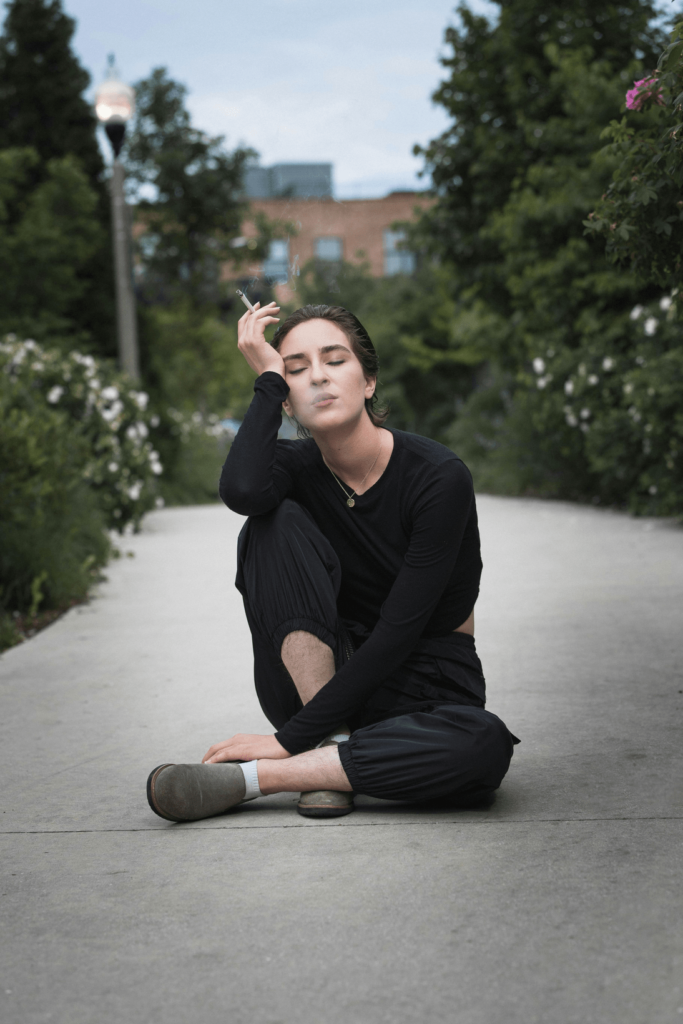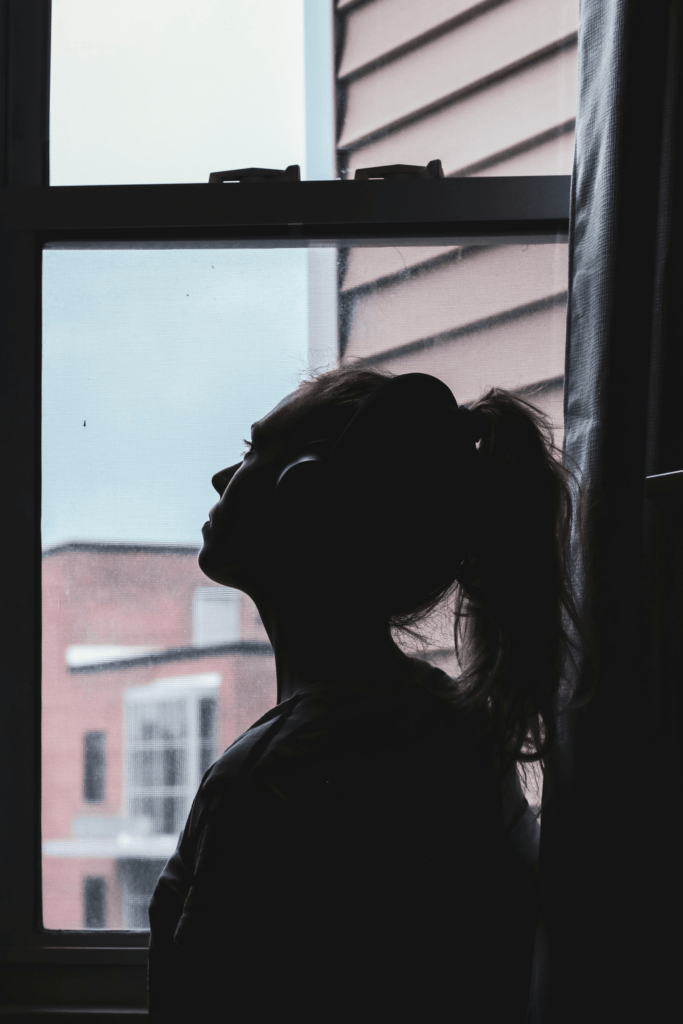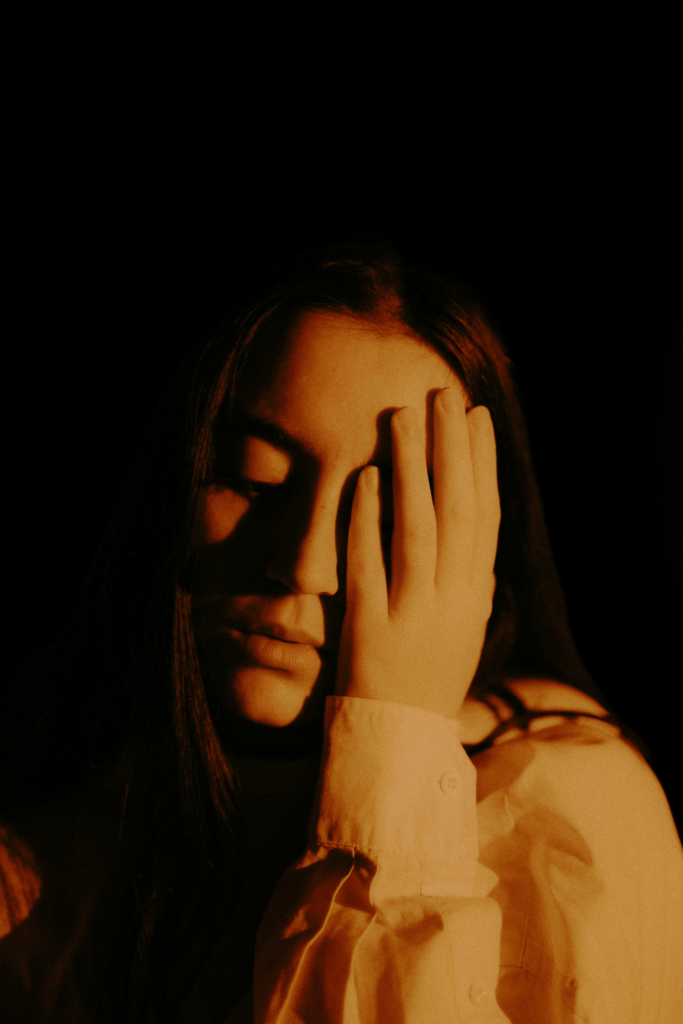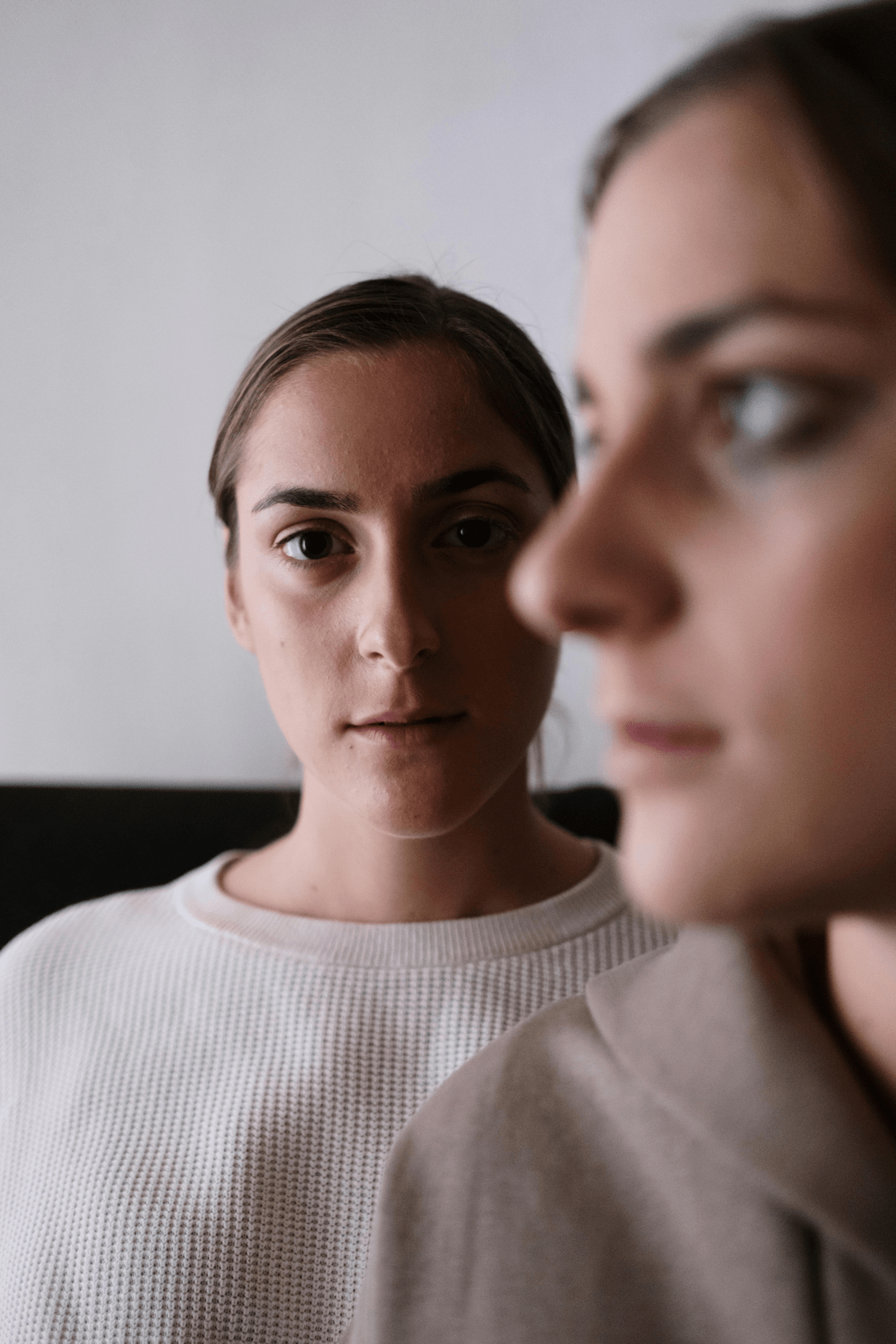Last updated on December 23rd, 2024 at 10:17 am
- 1. Understanding Anxiety Triggers
- 1.1 Common External Triggers
- 1.2 Common Internal Triggers
- 2. Identifying Personal Anxiety Triggers
- 2.1 Self-Reflection Techniques
- 2.2 Professional Assessment
- 3. Developing Effective Coping Strategies
- 3.1 Cognitive Techniques
- 3.2 Behavioral Techniques
- 3.3 Lifestyle Modifications
- 4. Professional Treatment Options
- 4.1 Psychotherapy
- 4.2 Medication
- 5. Building Resilience and Long-Term Management
- 5.1 Stress Inoculation Training
- 5.2 Mindfulness-Based Stress Reduction (MBSR)
- 5.3 Ongoing Self-Care Practices
- 6. The Role of Support Systems
- 6.1 Family and Friends
- 6.2 Support Groups
- 6.3 Professional Support Network
- 7. Challenges and Setbacks in Anxiety Management
- 7.1 Common Obstacles
- 7.2 Strategies for Overcoming Setbacks
- 8. Future Directions in Anxiety Research and Treatment
- 8.1 Emerging Therapies
- 8.2 Personalized Medicine
- Identifying Common Anxiety Triggers in Daily Life
- Physical Triggers of Anxiety
- Environmental Anxiety Triggers
- Emotional Triggers for Anxiety
- Anxiety Triggers and Mental Health
- Physical Symptoms During an Anxiety Attack
- Social Anxiety Triggers in Social Settings
- Anxiety Triggers Related to Health Concerns
- Anxiety Triggers in Children and Adolescents
- Coping Mechanisms and Reducing Anxiety Triggers
- Anxiety Triggers and the Role of Mental Disorders
- Financial Stressors as Anxiety Triggers
- Anxiety Triggers and the Body’s Fight-or-Flight Response
- Clinical Trials and Future Options for Anxiety Management
- Anxiety Triggers and Substance Use
- Anxiety Triggers in the Workplace
- Anxiety Triggers and Sleep
- Anxiety Triggers and Social Events
- Anxiety Triggers and Health-Related Anxieties
- Anxiety Triggers and Genetics
- Anxiety Triggers and Lifestyle Changes
- Anxiety Triggers and Diet
- Anxiety Triggers and High-Functioning Anxiety
- Anxiety Triggers and Breathing Exercises
- Anxiety Triggers and Irrational Fears
- Anxiety Triggers and Mental Illness
- Anxiety Triggers and Self-Help Strategies
- Anxiety Triggers and Support Groups
- Anxiety Triggers and Relaxation Techniques
- Anxiety Triggers and Exercise
- Anxiety Triggers and Therapy Options
- Anxiety Triggers and Thyroid Medications
- Frequently Asked Questions
- What Are The Most Common Anxiety Triggers?
- How Can I Identify My Personal Anxiety Triggers?
- What Role Does Caffeine Play In Triggering Anxiety?
- How Does Skipping Meals Affect Anxiety Levels?
- What Is The Connection Between Negative Thinking And Anxiety Triggers?
- How Do Financial Concerns Trigger Anxiety?
- What Are Some Effective Coping Strategies For Anxiety Triggers?
- How Can Mindfulness Techniques Help In Managing Anxiety Triggers?
- What Role Does Sleep Play In Anxiety And Its Triggers?
- How Does Social Anxiety Differ From Other Types Of Anxiety Disorders?
- Can Certain Foods Or Dietary Habits Trigger Anxiety?
- What Is The Relationship Between Trauma And Anxiety Triggers?
- How Can Regular Exercise Help In Managing Anxiety Triggers?
- What Are Some Effective Breathing Techniques For Managing Anxiety?
- How Can Journaling Help In Identifying And Coping With Anxiety Triggers?
- When Should I Seek Professional Help For Anxiety Triggers?
- How Can I Support A Loved One Who Is Struggling With Anxiety Triggers?
- What Role Do Genetics Play In Anxiety Disorders And Their Triggers?
- How Can Cognitive-Behavioral Therapy (CBT) Help In Managing Anxiety Triggers?
- How Can Exposure Therapy Help in Coping With Anxiety Triggers?
- What Are Common Anxiety Triggers Related to Social Interactions?
- How Does Blood Sugar Fluctuation Impact Anxiety Levels?
- What Are the Physical Symptoms of an Anxiety Attack?
- How Do Environmental Triggers Contribute to Anxiety?
- How Does Generalized Anxiety Disorder Differ From Social Anxiety Disorder?
- What Are Effective Coping Mechanisms for Managing Personal Anxiety Triggers?
- How Can Traumatic Events Trigger Anxiety Attacks?
- What Role Do Genetic Factors Play in Anxiety Disorders?
- How Can Identifying Anxiety Triggers Help Improve Quality of Life?
- How Do Lifestyle Factors Contribute to Anxiety?
- What Are the Best Coping Strategies for Anxiety Triggered by Health Concerns?
- How Can Cognitive Behavioral Therapy Assist in Coping With Anxiety Trigger Symptoms?
- How Does Chronic Stress Contribute to Anxiety Attacks?
- What Are Anxiety Attack Warning Signs to Look Out For?
- How Can Breathing Techniques Help Manage Anxiety Attacks?
- How Do Social Anxiety Triggers Differ From Other Anxiety Triggers?
- How Do Traumatic Life Events Act as Triggers for Anxiety?
- What Role Does Diet Play in Managing Anxiety Triggers?
- How Does Social Media Contribute to Anxiety Triggers?
Anxiety disorders affect millions of people worldwide, causing persistent worry, fear, and stress that can significantly impact daily life. While anxiety is a normal human emotion, excessive and uncontrolled anxiety can be debilitating.
Understanding the triggers that exacerbate anxiety and developing effective coping strategies are crucial steps in managing this challenging condition.
1. Understanding Anxiety Triggers
Anxiety triggers are specific situations, events, or stimuli that provoke feelings of worry, fear, or panic in individuals prone to anxiety. These triggers can be both internal and external factors that contribute to heightened anxiety levels.
1.1 Common External Triggers
External triggers are environmental factors or life events that can spark anxiety:
- Work-related stress: Deadlines, conflicts with colleagues, or job insecurity
- Financial concerns: Debt, unexpected expenses, or economic uncertainty
- Social situations: Large gatherings, public speaking, or meeting new people
- Major life changes: Moving, changing jobs, or ending a relationship
- Health issues: Chronic illness, awaiting test results, or health anxiety
- Environmental factors: Crowded spaces, loud noises, or unfamiliar surroundings
1.2 Common Internal Triggers
Internal triggers are thoughts, emotions, or physical sensations that can lead to anxiety:
- Negative self-talk: Self-criticism, perfectionism, or catastrophic thinking
- Physical sensations: Rapid heartbeat, shortness of breath, or dizziness
- Memories: Past traumatic experiences or stressful events
- Anticipation: Worrying about future events or potential outcomes
- Low self-esteem: Feeling inadequate or unworthy
- Fatigue: Lack of sleep or physical exhaustion
2. Identifying Personal Anxiety Triggers
Recognizing individual anxiety triggers is a crucial step in managing anxiety effectively. By understanding what situations or factors contribute to heightened anxiety, individuals can develop targeted coping strategies.
2.1 Self-Reflection Techniques
Engaging in self-reflection can help identify personal anxiety triggers:
- Journaling: Keep a daily log of anxiety symptoms and potential triggers
- Mindfulness practices: Pay attention to thoughts and emotions throughout the day
- Body scan exercises: Regularly check in with physical sensations and tension
- Emotion tracking apps: Utilize technology to monitor mood patterns and potential triggers
2.2 Professional Assessment
Seeking professional help can provide valuable insights into anxiety triggers:
- Psychological evaluation: A mental health professional can assess anxiety patterns
- Cognitive-behavioral therapy (CBT): This approach helps identify thought patterns contributing to anxiety
- Medical examination: Rule out underlying health conditions that may trigger anxiety


3. Developing Effective Coping Strategies
Once anxiety triggers are identified, individuals can develop personalized coping strategies to manage their symptoms effectively.
3.1 Cognitive Techniques
Cognitive strategies focus on reframing thoughts and perceptions:
- Cognitive restructuring: Challenge and reframe negative thought patterns
- Positive affirmations: Use self-encouraging statements to boost confidence
- Mindfulness meditation: Practice present-moment awareness to reduce worry
- Visualization: Imagine calming scenarios to promote relaxation
3.2 Behavioral Techniques
Behavioral strategies involve actions and lifestyle changes to manage anxiety:
- Progressive muscle relaxation: Systematically tense and relax muscle groups
- Deep breathing exercises: Practice controlled breathing to reduce physical tension
- Regular exercise: Engage in physical activity to release endorphins and reduce stress
- Time management: Prioritize tasks and create structured routines
- Healthy sleep habits: Establish consistent sleep patterns to improve overall well-being
3.3 Lifestyle Modifications
Making lifestyle changes can significantly impact anxiety levels:
- Balanced diet: Consume nutrient-rich foods and limit caffeine and alcohol intake
- Stress-reducing activities: Engage in hobbies or creative pursuits
- Social support: Cultivate meaningful relationships and seek support from loved ones
- Limit technology use: Reduce exposure to anxiety-inducing news or social media
- Nature exposure: Spend time outdoors to promote relaxation and grounding
4. Professional Treatment Options
For individuals struggling with severe or persistent anxiety, professional treatment can provide additional support and resources.
4.1 Psychotherapy
Various therapeutic approaches can help manage anxiety:
- Cognitive-behavioral therapy (CBT): Addresses thought patterns and behaviors contributing to anxiety
- Exposure therapy: Gradually exposes individuals to anxiety-provoking situations in a controlled environment
- Acceptance and commitment therapy (ACT): Focuses on accepting difficult emotions and committing to valued actions
- Dialectical behavior therapy (DBT): Teaches mindfulness, distress tolerance, and emotional regulation skills
4.2 Medication
In some cases, medication may be prescribed to manage anxiety symptoms:
- Selective serotonin reuptake inhibitors (SSRIs): Commonly prescribed antidepressants that can reduce anxiety
- Benzodiazepines: Fast-acting anti-anxiety medications for short-term use
- Beta-blockers: Can help manage physical symptoms of anxiety, such as rapid heartbeat
- Buspirone: An anti-anxiety medication that works differently from SSRIs and benzodiazepines


5. Building Resilience and Long-Term Management
Developing resilience and implementing long-term management strategies are essential for maintaining anxiety control over time.
5.1 Stress Inoculation Training
This approach helps individuals prepare for and cope with stressful situations:
- Education: Learn about stress and anxiety responses
- Skill acquisition: Develop coping strategies and relaxation techniques
- Application: Practice using these skills in increasingly challenging situations
5.2 Mindfulness-Based Stress Reduction (MBSR)
MBSR programs combine mindfulness meditation and yoga to reduce stress and anxiety:
- Body scan meditation: Develop awareness of physical sensations
- Sitting meditation: Focus on breath and present-moment awareness
- Mindful movement: Practice gentle yoga to promote mind-body connection
5.3 Ongoing Self-Care Practices
Incorporating regular self-care activities can help maintain emotional balance:
- Regular check-ins: Schedule time for self-reflection and emotional processing
- Boundary setting: Learn to say no and prioritize personal well-being
- Gratitude practice: Focus on positive aspects of life to shift perspective
- Continuous learning: Stay informed about anxiety management techniques and resources
6. The Role of Support Systems
Building and maintaining strong support systems can significantly impact anxiety management.
6.1 Family and Friends
Cultivating supportive relationships with loved ones is crucial:
- Open communication: Share feelings and concerns with trusted individuals
- Education: Help family and friends understand anxiety and how to provide support
- Collaborative problem-solving: Work together to address anxiety-provoking situations


6.2 Support Groups
Joining support groups can provide valuable connections and shared experiences:
- Peer-led groups: Connect with others who understand anxiety firsthand
- Online communities: Access support and resources from the comfort of home
- Skill-sharing: Learn new coping strategies from others’ experiences
6.3 Professional Support Network
Building a network of healthcare professionals can ensure comprehensive care:
- Primary care physician: Monitor overall health and coordinate care
- Mental health professional: Provide ongoing therapy and support
- Complementary practitioners: Explore alternative therapies like acupuncture or massage
7. Challenges and Setbacks in Anxiety Management
Managing anxiety is an ongoing process that may involve challenges and setbacks. Understanding these obstacles can help individuals navigate them more effectively.
7.1 Common Obstacles
Recognizing potential roadblocks in anxiety management:
- Perfectionism: Setting unrealistic expectations for recovery
- Avoidance behaviors: Difficulty facing anxiety-provoking situations
- Inconsistent practice: Struggle to maintain regular coping strategies
- Co-occurring conditions: Managing anxiety alongside other mental health issues
7.2 Strategies for Overcoming Setbacks
Developing resilience in the face of challenges:
- Self-compassion: Practice kindness and understanding towards oneself
- Reframe setbacks: View challenges as opportunities for growth and learning
- Seek additional support: Reach out to professionals or loved ones during difficult times
- Review and adjust strategies: Regularly evaluate and modify coping techniques as needed


8. Future Directions in Anxiety Research and Treatment
As our understanding of anxiety continues to evolve, new approaches and technologies are emerging to enhance anxiety management.
8.1 Emerging Therapies
Innovative treatment approaches on the horizon:
- Virtual reality exposure therapy: Using VR technology for immersive anxiety treatment
- Neurofeedback: Training the brain to regulate anxiety responses
- Psychedelic-assisted therapy: Exploring the potential of substances like psilocybin in anxiety treatment
8.2 Personalized Medicine
Tailoring treatments to individual needs:
- Genetic testing: Identifying genetic factors that influence anxiety and treatment response
- Biomarker research: Developing objective measures of anxiety and treatment efficacy
- AI-assisted therapy: Utilizing artificial intelligence to personalize treatment plans
Identifying Common Anxiety Triggers in Daily Life
Recognizing anxiety triggers in daily life can help manage symptoms effectively. Common factors such as everyday stressors, financial stressors, and life transitions often contribute to feelings of anxiety.
Physical Triggers of Anxiety
Physical conditions can contribute to anxiety in individuals. Fluctuations in blood sugar or blood pressure, along with chronic pain, can serve as a trigger for anxiety. Individuals experiencing these physical symptoms might notice an increased heart rate or heart palpitations, which can elevate their feelings of anxiety. Ensuring adequate sleep, maintaining a healthy diet, and managing caffeine intake are practical ways to reduce anxiety triggers.


Environmental Anxiety Triggers
Environmental triggers, such as stressful life events or social settings, are common anxiety triggers. Intense anxiety may arise from social interactions, especially for people with social anxiety disorder. For those facing a history of anxiety in social environments, exposure to these triggers can cause debilitating fear. Gradual exposure, as seen in exposure therapy, is a proven way to address these anxiety triggers and help individuals navigate their responses more effectively.
Emotional Triggers for Anxiety
Emotional responses play a vital role in triggering anxiety in individuals. Negative thinking, irrational fears, and intense fear are common anxiety triggers that worsen anxiety over time. These responses can lead to excessive worrying or uncontrollable worries, especially when combined with personal experiences of trauma. Addressing these emotions through grounding techniques, cognitive behavioral therapy, or deep breathing can help mitigate the negative impacts of emotional triggers.
Anxiety Triggers and Mental Health
Individuals with mental health concerns, such as generalized anxiety disorder or obsessive-compulsive disorder, are particularly susceptible to anxiety triggers in daily life. Personal triggers vary based on the type of anxiety disorder and can include social anxiety triggers, workplace anxiety triggers, or anxiety triggers in relationships. People with anxiety disorders can benefit from therapy for anxiety and effective treatment options such as exposure therapy or medication, which can help in managing anxiety triggers.
Physical Symptoms During an Anxiety Attack
Anxiety attack symptoms are often characterized by physical symptoms like chest pain, rapid breathing, hot flashes, or a racing heart. Understanding these symptoms as anxiety attack warning signs is crucial for managing one’s responses during anxious times. Engaging in relaxation techniques such as deep breathing or progressive muscle relaxation can help reduce physical symptoms and manage stress levels during an anxiety attack.
Social Anxiety Triggers in Social Settings
Social anxiety often involves a fear of judgment or intense shyness during social events. Common triggers include social interactions where individuals feel overwhelmed or inadequate. Exposure therapy is commonly used to address social anxiety, as it allows individuals to engage gradually in social settings to reduce their fear. Therapy options for anxiety often combine exposure therapy with cognitive restructuring to tackle the fear of judgment effectively.


Anxiety Triggers Related to Health Concerns
Health-related anxieties can also trigger anxious feelings. Physical health concerns, such as heart disease, thyroid medications, or fluctuations in blood sugar, can serve as anxiety triggers. It’s important to monitor physical symptoms with a healthcare provider to distinguish between health issues and symptoms related to anxiety. Effective management, such as consulting a doctor for anxiety and keeping track of health through regular checkups, can alleviate the concerns contributing to increased anxiety levels.
Anxiety Triggers in Children and Adolescents
Anxiety triggers in children and anxiety in adolescents can differ from adult triggers. Separation anxiety disorder is a common type of anxiety that affects children, where being away from parents or familiar environments can lead to extreme fear or anxious responses. Young individuals may also experience social anxiety or specific fears in school or social environments. Gradual exposure to these situations, along with reassurance from caregivers, can assist in managing the cycle of anxiety.
Coping Mechanisms and Reducing Anxiety Triggers
Effective coping mechanisms are essential for dealing with anxiety triggers. Options for anxiety reduction include using cognitive behavioral therapy, practicing mindfulness, and maintaining a healthy lifestyle. Lifestyle factors causing anxiety, such as high caffeine intake, excessive work, or lack of physical exercise, should be addressed to reduce anxiety triggers. A healthy coping mechanism could include engaging in daily exercise, eating healthy snacks, and ensuring adequate sleep to reduce overall anxiety and stress-induced anxiety triggers.
Anxiety Triggers and the Role of Mental Disorders
People with mental disorders, such as panic disorder or post-traumatic stress disorder, are often more vulnerable to anxiety triggers. Exposure to traumatic events or extreme shyness can leave individuals prone to anxiety attack causes. A healthcare provider may suggest different effective treatment options like exposure therapy or cognitive-behavioral therapy to help people overcome personal triggers linked to mental health conditions.


Financial Stressors as Anxiety Triggers
Financial worries or financial anxiety can become significant triggers for anxiety in adults. Daily stressors, such as creating a financial plan or handling heavy workloads, may lead to feelings of inadequacy and excessive anxiety. Consulting a financial advisor can be a helpful approach to managing financial stressors and mitigating financial worries. Additionally, seeking online therapies or mental health support groups can provide necessary guidance for coping with financial-related triggers for anxiety.
Anxiety Triggers and the Body’s Fight-or-Flight Response
Anxiety triggers often activate the body’s fight-or-flight response, leading to physical symptoms like rapid breathing or increased heart rate. Emotional symptoms such as feeling overwhelmed or experiencing intense fear are also linked to this response. Techniques like gradual exposure and practicing relaxation techniques can help in managing these reactions. The goal is to break the cycle of anxiety and lessen the impact of these anxious responses over time.
Clinical Trials and Future Options for Anxiety Management
Clinical trials are being conducted to explore innovative options for anxiety management. Trials for anxiety often focus on exposure therapy, behavioral responses, and coping strategies to address the root causes of anxiety triggers. Emerging methods such as telehealth therapies and personalized treatment approaches offer promising pathways for individuals seeking relief from anxiety triggers and better quality of life.
Anxiety Triggers and Substance Use
Substance use, including alcohol and over-the-counter medications, can act as anxiety triggers. Individuals with a history of anxiety might experience worsening symptoms due to substance misuse. Substance use may influence stress hormones, contributing to increased anxiety levels. Addressing substance use as part of anxiety trigger management is vital to maintaining mental health and overall well-being.


Anxiety Triggers in the Workplace
Workplace anxiety triggers can include heavy workloads, tight deadlines, or fear of judgment from colleagues. Anxious feelings during workplace interactions can lead to decreased productivity and stress levels. Effective coping mechanisms, such as developing an action plan for daily tasks, can help reduce workplace anxiety and improve quality of life. Consulting a healthcare provider for anxiety-related work stress can provide additional strategies for managing these triggers.
Anxiety Triggers and Sleep
Sleep disturbances can serve as a trigger for anxiety. Acute sleep deprivation may increase the risk factors for anxiety, creating a vicious cycle of anxiety and inadequate sleep. Strategies like maintaining a consistent sleep schedule and engaging in relaxation techniques before bedtime can be beneficial. Addressing sleep as part of overall anxiety management is crucial for those dealing with ongoing anxiety concerns.
Anxiety Triggers and Social Events
Social events are often a common trigger for those with social anxiety. Feelings of inadequacy or fear of negative judgment can lead to extreme shyness or avoidance of social situations. Exposure therapy, as well as mindfulness practices, can help individuals engage more comfortably in social settings. Managing social anxiety triggers can lead to more fulfilling social interactions and improved well-being.
Anxiety Triggers and Health-Related Anxieties
Health-related anxieties, such as concerns over personal health conditions or medical diagnoses, are common factors that contribute to anxiety. Individuals may develop anxious feelings related to their physical health or potential medical conditions. Working closely with health care providers to address these health concerns can reduce anxiety and improve one’s ability to cope with triggers effectively.
Anxiety Triggers and Genetics
An individual’s genetic makeup can play a role in the susceptibility to anxiety triggers. Having blood relatives with a history of anxiety or other mental disorders may increase one’s vulnerability to developing anxiety. Understanding these genetic risk factors can help in recognizing anxiety triggers early and seeking preventive interventions.


Anxiety Triggers and Lifestyle Changes
Lifestyle changes, such as moving to a new city or starting a new job, can be anxiety-provoking situations. The stress of adapting to unfamiliar environments or situations can act as an anxiety trigger. Practicing coping mechanisms like mindfulness, cognitive restructuring, or keeping feelings on paper can help navigate these life experiences with reduced anxiety. Making healthy lifestyle adjustments is key to reducing anxiety and improving overall well-being.
Anxiety Triggers and Diet
Diet plays an essential role in managing anxiety triggers. Fluctuations in blood sugar caused by unhealthy eating habits can exacerbate feelings of anxiety. Maintaining a healthy diet with balanced meals and healthy snacks throughout the day can help stabilize blood sugar levels. Reducing anxiety triggers through dietary changes is an effective and natural approach to anxiety management.
Anxiety Triggers and High-Functioning Anxiety
High-functioning anxiety can present unique challenges in identifying anxiety triggers. People with high-functioning anxiety may experience constant worry and anxious feelings while still managing their daily responsibilities. The pressure to maintain performance and hide symptoms can make it difficult to recognize and address anxiety triggers. Therapy for anxiety, including cognitive-behavioral approaches, can support individuals with high-functioning anxiety in overcoming these challenges.
Anxiety Triggers and Breathing Exercises
Breathing exercises are effective tools for managing anxiety triggers. Rapid breathing or hyperventilation can heighten the feeling of anxiety, making breathing control vital during anxious times. Techniques such as taking a deep breath or practicing slow, controlled breathing can calm the body’s fight-or-flight response. Integrating breathing exercises into daily routines can provide lasting relief from anxiety triggers.
Anxiety Triggers and Irrational Fears
Irrational fears are a common type of anxiety trigger and can lead to intense feelings of fear. These irrational fears often stem from past life experiences or traumatic events, leading to a cycle of anxiety. Cognitive-behavioral therapy is an effective treatment to address these fears by restructuring negative thinking patterns and reducing the emotional responses associated with them.


Anxiety Triggers and Mental Illness
Anxiety can often coexist with other forms of mental illness, compounding feelings of anxiety. Individuals with multiple mental health disorders may face more intense anxiety attack triggers. Seeking support from health care providers and maintaining an action plan to cope with symptoms can be key to managing these overlapping concerns.
Anxiety Triggers and Self-Help Strategies
Self-help strategies are crucial in managing personal triggers of anxiety. Practices such as writing down feelings on paper or using grounding techniques can help individuals face their anxiety-provoking situations. These strategies can empower individuals to manage their anxious responses effectively.
Anxiety Triggers and Support Groups
Support groups provide a valuable space for people with anxiety disorders to share their experiences and coping strategies. Personal experiences shared in a group setting can lead to the development of healthy coping mechanisms. Support from peers helps individuals feel less isolated in their struggles and provides new insights into managing common anxiety triggers.
Anxiety Triggers and Relaxation Techniques
Relaxation techniques such as progressive muscle relaxation and mindfulness are effective tools for reducing anxiety triggers. These practices help calm the body’s fight-or-flight response, leading to a reduction in stress hormones. Incorporating these techniques into daily routines can contribute to better management of anxiety triggers.
Anxiety Triggers and Exercise
Exercise is an effective way to manage anxiety triggers and reduce stress levels. Physical activity helps decrease excessive anxiety by regulating stress hormones and enhancing mood. Engaging in regular exercise can also improve physical health, thereby reducing health-related anxieties and contributing to overall well-being.


Anxiety Triggers and Therapy Options
There are several therapy options for managing anxiety, including exposure therapy and cognitive-behavioral therapy. Therapy can address specific anxiety triggers and assist individuals in developing coping mechanisms. Working with a healthcare provider can help identify the most appropriate therapy based on individual triggers and type of anxiety.
Anxiety Triggers and Thyroid Medications
Thyroid medications can sometimes act as triggers for anxiety due to their effect on hormonal balance. Monitoring thyroid levels and consulting healthcare providers can help in managing these medication-induced triggers. Adjustments to dosage or medication may be needed to maintain a balance that reduces anxiety symptoms.
From Embrace Inner Chaos to your inbox
Transform your Chaos into authentic personal growth – sign up for our free weekly newsletter! Stay informed on the latest research advancements covering:
Narcissistic Personality Disorder (NPD)
Frequently Asked Questions
What Are The Most Common Anxiety Triggers?
Anxiety triggers can vary from person to person, but some common ones include health issues, financial concerns, and social situations. According to the Anxiety and Depression Association of America, stress is a significant trigger for many individuals with anxiety disorders. Other common triggers include caffeine consumption, lack of sleep, and certain medications.
Physical health problems can also be a major source of anxiety. For instance, chronic illnesses or unexpected diagnoses may lead to increased worry and stress. It’s important to note that these triggers can differ based on individual experiences and circumstances.
Identifying your personal anxiety triggers is a crucial step in managing your mental health. Keeping a journal or working with a mental health professional can help you recognize patterns and develop effective coping strategies.
How Can I Identify My Personal Anxiety Triggers?
Identifying personal anxiety triggers often requires self-reflection and careful observation. One effective method is keeping a journal to track your anxiety symptoms and the situations that precede them. The National Institute of Mental Health recommends noting the time, place, and circumstances surrounding your anxiety episodes.
Another helpful strategy is practicing mindfulness. By staying present and aware of your thoughts and feelings, you can better recognize what situations or stimuli lead to increased anxiety. This heightened awareness can provide valuable insights into your personal triggers.
Seeking feedback from trusted friends or family members can also be beneficial. Sometimes, others may notice patterns in your behavior or anxiety symptoms that you might overlook. Remember, identifying triggers is an ongoing process, and it may take time to recognize all of your anxiety triggers.
What Role Does Caffeine Play In Triggering Anxiety?
Caffeine, a stimulant found in coffee, tea, and many energy drinks, can significantly impact anxiety levels. According to Harvard Health Publishing, caffeine can mimic and exacerbate symptoms of anxiety, such as increased heart rate, restlessness, and difficulty concentrating.
For individuals with anxiety disorders, caffeine consumption may trigger or worsen anxiety symptoms. This is because caffeine stimulates the body’s ‘fight-or-flight’ response, which is already heightened in people with anxiety. The effects can be particularly pronounced in those with panic disorder or social anxiety disorder.
However, the impact of caffeine on anxiety can vary from person to person. While some may need to eliminate caffeine entirely, others might find that limiting their intake or avoiding caffeine during stressful periods is sufficient. It’s important to pay attention to how your body responds to caffeine and adjust your consumption accordingly.
How Does Skipping Meals Affect Anxiety Levels?
Skipping meals can have a significant impact on anxiety levels due to its effect on blood sugar levels. According to Mayo Clinic, when blood sugar drops, it can trigger the release of stress hormones like cortisol and adrenaline, which can increase feelings of anxiety.
Moreover, irregular eating patterns can lead to physical symptoms such as shakiness, dizziness, and irritability, which can be mistaken for or exacerbate anxiety symptoms. This can create a cycle where physical discomfort leads to increased anxiety, which in turn may affect eating habits.
Maintaining regular, balanced meals is crucial for managing anxiety. Eating at consistent times throughout the day helps stabilize blood sugar levels, providing your body and brain with a steady supply of energy. This can help reduce anxiety symptoms and improve overall mood and well-being.
What Is The Connection Between Negative Thinking And Anxiety Triggers?
Negative thinking patterns, also known as cognitive distortions, play a significant role in triggering and maintaining anxiety. The Beck Institute for Cognitive Behavior Therapy explains that these distorted thought patterns can lead to an overestimation of threats and an underestimation of one’s ability to cope, fueling anxiety.
Common negative thinking patterns include catastrophizing (assuming the worst possible outcome), overgeneralization (applying one negative experience to all similar situations), and all-or-nothing thinking (seeing situations in black and white terms). These thought patterns can turn minor stressors into major anxiety triggers.
Recognizing and challenging these negative thoughts is a key component of cognitive-behavioral therapy (CBT), a widely used treatment for anxiety disorders. By learning to identify and reframe negative thoughts, individuals can reduce their anxiety and develop more balanced, realistic perspectives on challenging situations.
How Do Financial Concerns Trigger Anxiety?
Financial concerns are a common trigger for anxiety, affecting people across various income levels. According to the American Psychological Association, money is consistently one of the top sources of stress for Americans. Financial worries can trigger anxiety by creating a sense of uncertainty about the future and threatening one’s sense of security.
Specific financial triggers might include job loss, unexpected expenses, debt, or difficulty meeting basic needs. These situations can lead to chronic stress, which may develop into an anxiety disorder if left unmanaged. The constant worry about financial stability can also exacerbate existing anxiety conditions.
Addressing financial anxiety often requires a combination of practical financial management and psychological coping strategies. This might include creating a budget, seeking financial advice, and practicing stress-reduction techniques. It’s also important to remember that seeking help for financial anxiety is not a sign of weakness, but a proactive step towards better mental health.
What Are Some Effective Coping Strategies For Anxiety Triggers?
Developing effective coping strategies is crucial for managing anxiety triggers. One widely recommended approach is practicing relaxation techniques. The National Center for Complementary and Integrative Health suggests methods such as deep breathing exercises, progressive muscle relaxation, and meditation can help reduce anxiety symptoms.
Cognitive-behavioral therapy (CBT) techniques are also highly effective. These include identifying and challenging negative thought patterns, gradual exposure to anxiety-provoking situations, and developing problem-solving skills. Many people find that combining these techniques with mindfulness practices can significantly reduce anxiety.
Physical activity is another powerful tool for managing anxiety. Regular exercise has been shown to reduce stress, improve mood, and increase resilience to anxiety triggers. Additionally, maintaining a healthy sleep schedule and balanced diet can help stabilize mood and reduce vulnerability to anxiety.
How Can Mindfulness Techniques Help In Managing Anxiety Triggers?
Mindfulness techniques have gained significant recognition for their effectiveness in managing anxiety triggers. According to Harvard Health Publishing, mindfulness can help reduce anxiety by focusing attention on the present moment, rather than worrying about the future or ruminating on the past.
One key mindfulness technique is mindful breathing, where you focus your attention on your breath, observing it without trying to change it. This can help calm the mind and body, reducing the intensity of anxiety symptoms. Another technique is body scanning, where you systematically focus on different parts of your body, noticing any sensations without judgment.
Regular practice of mindfulness can help you become more aware of your thoughts and feelings, allowing you to recognize anxiety triggers more quickly. This increased awareness can provide a sense of control and help you respond to triggers more effectively, rather than reacting automatically.
What Role Does Sleep Play In Anxiety And Its Triggers?
Sleep plays a crucial role in regulating mood and managing anxiety. According to the Sleep Foundation, there’s a bidirectional relationship between anxiety and sleep – anxiety can cause sleep problems, and sleep deprivation can exacerbate anxiety.
Lack of sleep can increase the brain’s anticipatory reactions, leading to excessive worry. This heightened state of alertness can make individuals more susceptible to anxiety triggers. Conversely, anxiety can make it difficult to fall asleep or stay asleep, creating a cycle of sleep deprivation and increased anxiety.
Establishing good sleep hygiene is essential for managing anxiety. This includes maintaining a consistent sleep schedule, creating a relaxing bedtime routine, and ensuring a comfortable sleep environment. For those with persistent sleep issues, cognitive-behavioral therapy for insomnia (CBT-I) has been shown to be effective in improving sleep quality and reducing anxiety symptoms.
How Does Social Anxiety Differ From Other Types Of Anxiety Disorders?
Social anxiety disorder, also known as social phobia, is characterized by intense fear or anxiety in social situations. According to the National Institute of Mental Health, people with social anxiety disorder fear being judged, embarrassed, or rejected in social interactions.
Unlike generalized anxiety disorder, which involves worry about various aspects of life, social anxiety specifically centers around social situations. Common triggers for social anxiety include public speaking, meeting new people, or being the center of attention. These situations may not cause significant distress for people with other types of anxiety disorders.
Social anxiety can significantly impact daily life, leading to avoidance of social situations and potentially affecting work, school, and personal relationships. Treatment often involves a combination of cognitive-behavioral therapy, particularly exposure therapy, and in some cases, medication.
Can Certain Foods Or Dietary Habits Trigger Anxiety?
Certain foods and dietary habits can indeed trigger or exacerbate anxiety symptoms. According to Harvard Health Publishing, consuming high amounts of sugar and processed foods can lead to blood sugar fluctuations that may trigger anxiety-like symptoms.
Caffeine, as mentioned earlier, is a common dietary trigger for anxiety. Additionally, alcohol, while often used to relax, can actually increase anxiety symptoms, especially as its effects wear off. Some people may also find that food additives or preservatives can trigger anxiety symptoms.
On the other hand, a balanced diet rich in whole grains, fruits, vegetables, and lean proteins can help stabilize mood and reduce anxiety. Foods high in omega-3 fatty acids, such as fatty fish, and foods rich in magnesium, like leafy greens, have been associated with lower anxiety levels. It’s important to pay attention to how different foods affect your mood and anxiety levels.
What Is The Relationship Between Trauma And Anxiety Triggers?
Trauma and anxiety are closely interconnected, with traumatic experiences often serving as significant anxiety triggers. According to the National Center for PTSD, individuals who have experienced trauma are at a higher risk of developing anxiety disorders.
Traumatic events can create lasting changes in the brain’s stress response system, leading to heightened reactivity to potential threats. This can result in anxiety being triggered by stimuli associated with the traumatic event, even in objectively safe situations. For example, a person who experienced a car accident might feel intense anxiety when driving or even seeing cars.
Treatment for trauma-related anxiety often involves trauma-focused therapies such as Cognitive Processing Therapy (CPT) or Eye Movement Desensitization and Reprocessing (EMDR). These therapies help individuals process traumatic memories and reduce their power as anxiety triggers. It’s important to work with a mental health professional experienced in trauma treatment to address these issues effectively.
How Can Regular Exercise Help In Managing Anxiety Triggers?
Regular exercise has been shown to be highly effective in managing anxiety and reducing sensitivity to anxiety triggers. According to the Anxiety and Depression Association of America, exercise can be as effective as medication for some people in reducing anxiety symptoms.
Exercise helps manage anxiety in several ways. It releases endorphins, which are natural mood boosters. It also reduces stress hormones like cortisol and adrenaline, which are often elevated in people with anxiety. Regular physical activity can also improve sleep quality, which is crucial for managing anxiety.
Moreover, exercise can serve as a form of exposure therapy. The physical sensations experienced during exercise (increased heart rate, sweating) are similar to anxiety symptoms. By regularly experiencing these sensations in a controlled, positive context, individuals can become less reactive to them in anxiety-provoking situations.
What Are Some Effective Breathing Techniques For Managing Anxiety?
Breathing techniques are powerful tools for managing anxiety in the moment. The American Lung Association recommends several effective breathing exercises that can help calm anxiety symptoms.
One popular technique is diaphragmatic breathing, also known as belly breathing. This involves taking slow, deep breaths from your diaphragm rather than shallow chest breaths. Another effective method is the 4-7-8 technique, where you inhale for 4 counts, hold for 7, and exhale for 8.
Box breathing is another technique used by many, including military personnel, to manage stress and anxiety. It involves inhaling for 4 counts, holding for 4, exhaling for 4, and holding again for 4, creating a “box” pattern. Regular practice of these techniques can help you respond more calmly to anxiety triggers.
How Can Journaling Help In Identifying And Coping With Anxiety Triggers?
Journaling is a powerful tool for identifying and managing anxiety triggers. According to University of Rochester Medical Center, keeping a journal can help you track your daily experiences and emotions, making it easier to identify patterns and triggers.
When journaling for anxiety, it’s helpful to note not just what happened, but also your thoughts and physical sensations. This can help you recognize early signs of anxiety and identify what situations or thoughts tend to precede anxiety symptoms. Over time, you may start to see patterns emerge, revealing your personal anxiety triggers.
Journaling can also be a coping strategy in itself. Writing about your worries can help you process your emotions and gain perspective on your concerns. Some find it helpful to challenge anxious thoughts in writing, practicing cognitive restructuring techniques learned in therapy.
When Should I Seek Professional Help For Anxiety Triggers?
While everyone experiences anxiety at times, it’s important to recognize when professional help is needed. According to the American Psychological Association, you should consider seeking help if anxiety is interfering with your daily life, relationships, or ability to function.
Specific signs that it’s time to seek professional help include: persistent worry that’s difficult to control, anxiety that keeps you from engaging in activities you enjoy, physical symptoms like rapid heartbeat or difficulty breathing, or if you’re using alcohol or drugs to cope with anxiety.
A mental health professional can provide a proper diagnosis and develop a treatment plan tailored to your needs. This might include therapy, medication, or a combination of both. Remember, seeking help is a sign of strength, not weakness, and early intervention can prevent anxiety from becoming more severe.
How Can I Support A Loved One Who Is Struggling With Anxiety Triggers?
Supporting a loved one with anxiety requires patience, understanding, and education. The National Alliance on Mental Illness suggests several strategies for supporting someone with anxiety.
First, educate yourself about anxiety disorders and their triggers. This can help you understand what your loved one is experiencing. Listen to them without judgment and validate their feelings, even if their fears seem irrational to you. Encourage them to seek professional help if their anxiety is significantly impacting their life.
Avoid enabling avoidance behaviors, as this can reinforce anxiety in the long term. Instead, gently encourage them to face their fears gradually. Offer to accompany them to anxiety-provoking situations if they find it helpful. Remember to take care of your own mental health as well, as supporting someone with anxiety can be challenging.
What Role Do Genetics Play In Anxiety Disorders And Their Triggers?
Genetics play a significant role in the development of anxiety disorders, influencing both an individual’s susceptibility to anxiety and their specific triggers. According to the National Institute of Mental Health, anxiety disorders can run in families, suggesting a genetic component.
Research has identified several genes that may be involved in anxiety disorders. These genes affect the brain’s response to stress and the regulation of neurotransmitters like serotonin, which plays a crucial role in mood regulation. However, it’s important to note that having a genetic predisposition doesn’t guarantee developing an anxiety disorder.
Environmental factors interact with genetic predispositions in complex ways. For example, someone with a genetic vulnerability to anxiety might be more sensitive to stress, making them more likely to develop anxiety in response to life stressors. Understanding the genetic component of anxiety can help in developing more targeted treatments and prevention strategies.
How Can Cognitive-Behavioral Therapy (CBT) Help In Managing Anxiety Triggers?
Cognitive-Behavioral Therapy (CBT) is one of the most effective treatments for anxiety disorders, particularly in managing anxiety triggers. According to the Beck Institute for Cognitive Behavior Therapy, CBT helps individuals identify and change negative thought patterns and behaviors that contribute to anxiety.
In CBT, individuals learn to recognize their anxiety triggers and the thoughts associated with them. They then work on challenging these thoughts, replacing them with more balanced, realistic ones. This process, known as cognitive restructuring, can significantly reduce the power of anxiety triggers.
CBT also involves behavioral techniques, such as gradual exposure to anxiety-provoking situations. This helps individuals build confidence in their ability to cope with these situations, reducing their power as triggers. Additionally, CBT often incorporates relaxation techniques and stress management strategies, providing a comprehensive approach to managing anxiety.
How Can Exposure Therapy Help in Coping With Anxiety Triggers?
Exposure therapy is a psychological treatment designed to help individuals confront and gradually become desensitized to anxiety triggers. It works by exposing a person to the source of their anxiety in a controlled manner, reducing their fear over time.
During this process, the individual’s anxiety responses decrease as they learn to tolerate the distressing thoughts or feelings. This form of therapy has been effective for individuals with generalized anxiety disorder and panic disorder, providing a structured way to manage intense fear.
This approach often includes repeated, systematic exposure to a particular anxiety-provoking situation. The person can face it without experiencing overwhelming distress, such as being gradually introduced to increasingly challenging social settings.
The American Psychological Association highlights that exposure therapy is often used alongside cognitive behavioral therapy for maximum effectiveness. This combination helps individuals manage their physical symptoms like a racing heart and chest pain more effectively.
Exposure therapy can help disrupt the cycle of anxiety by altering behavioral responses to triggers. By consistently facing anxiety triggers in a controlled manner, individuals build confidence in their ability to manage their anxiety.
The National Institute of Mental Health explains that exposure therapy can help improve the quality of life for those struggling with anxiety disorders. It offers a sense of empowerment and resilience to individuals undergoing therapy.
What Are Common Anxiety Triggers Related to Social Interactions?
Social anxiety triggers often involve situations where an individual feels they might be judged or embarrassed. These triggers can include speaking in front of groups, meeting new people, or attending social events like parties.
For people with social anxiety disorder, these interactions can lead to excessive worry and intense anxiety, making everyday situations feel overwhelming. The Mayo Clinic explains that social anxiety is a persistent fear of social interactions that affects a person’s ability to function.
Triggers related to social interactions can lead to physical symptoms like sweating, trembling, rapid breathing, and an increased heart rate. These symptoms arise from the body’s fight-or-flight response, triggered by the perception of social threats.
The thought of being criticized or not meeting social expectations can elevate anxiety levels significantly. This intense fear of negative evaluation or rejection can make even simple interactions, like small talk, feel daunting.
Managing these social anxiety triggers often requires healthy coping mechanisms like cognitive-behavioral therapy (CBT). CBT helps reframe negative thinking patterns and can be beneficial for those experiencing social anxiety.
The Cleveland Clinic suggests that consistent practice of gradual exposure to feared social settings can reduce anxiety over time. Techniques such as practicing conversations or joining smaller group activities can improve comfort in social situations.
How Does Blood Sugar Fluctuation Impact Anxiety Levels?
Fluctuations in blood sugar can significantly impact anxiety levels, causing both physical and emotional symptoms of anxiety. Low blood sugar, or hypoglycemia, can lead to symptoms like irritability, confusion, rapid heart rate, and feelings of anxiety.
These symptoms can mimic or trigger anxiety attacks, making individuals feel as if they are experiencing acute anxiety. Harvard Medical School notes that maintaining stable blood sugar is crucial for people with anxiety disorders to minimize these physical symptoms.
High blood sugar levels can also contribute to anxiety by affecting the body’s natural balance and exacerbating stress levels. When blood sugar is unstable, the hormonal responses, including the release of cortisol, can become unbalanced.
This imbalance may lead to increased anxious feelings, a racing heart, and other anxiety symptoms. Such symptoms are particularly challenging for individuals already dealing with anxiety triggers.
To manage anxiety linked to blood sugar fluctuations, a balanced diet with regular meals and healthy snacks is essential. The American Diabetes Association recommends avoiding excessive caffeine and sugary foods to minimize anxiety symptoms.
Opting for complex carbohydrates, protein, and healthy fats can provide stable energy. This can help reduce anxiety and prevent spikes and drops in blood sugar.
What Are the Physical Symptoms of an Anxiety Attack?
Anxiety attacks present with physical symptoms that are often alarming and distressing to individuals. Common physical symptoms include chest pain, rapid heart rate, shortness of breath, dizziness, hot flashes, and stomach pain.
These symptoms often mimic those of serious physical health conditions, such as heart disease, which can lead to increased anxiety. The American Heart Association explains that although anxiety-induced chest pain is not life-threatening, it can still be intense.
During an anxiety attack, the body’s fight-or-flight response becomes activated, leading to an increase in stress hormones like adrenaline. This response results in physical manifestations such as muscle tension, sweating, and a feeling of tightness in the chest.
These symptoms are part of the body’s natural response to perceived threats. In the context of an anxiety attack, the threats are often more psychological than physical, leading to further confusion.
Coping mechanisms like breathing techniques are helpful in managing physical symptoms. Slow, deep breathing helps regulate heart rate and promotes relaxation during an anxiety attack.
The Anxiety and Depression Association of America emphasizes that grounding techniques, such as focusing on breathing or counting objects in the room, can effectively manage physical sensations. These techniques can reduce the impact of an anxiety attack.


How Do Environmental Triggers Contribute to Anxiety?
Environmental triggers play a significant role in exacerbating anxiety symptoms for many individuals. Common triggers include loud noises, crowded spaces, certain scents, or specific visual stimuli that may remind someone of a traumatic event.
These triggers can cause sudden spikes in anxiety, leading to symptoms like increased heart palpitations, rapid breathing, and feelings of fear. The Environmental Protection Agency has noted that exposure to certain pollutants or stressors can also contribute to anxiety symptoms.
For individuals with post-traumatic stress disorder (PTSD), environmental triggers can be particularly debilitating. Sights, sounds, or smells reminiscent of a traumatic experience can prompt intense anxiety, making it hard to remain calm.
PTSD often involves a heightened state of alertness, which makes these triggers more impactful. This leads to strong physical and emotional responses that can be difficult to manage.
Managing environmental triggers involves creating a safe, calm space that minimizes exposure to anxiety-provoking stimuli. Techniques like using noise-canceling headphones, aromatherapy, or avoiding known triggers can be helpful.
The National Institute of Environmental Health Sciences suggests reducing exposure to negative environmental factors. Incorporating relaxation techniques can significantly alleviate the impact of these triggers.
How Does Generalized Anxiety Disorder Differ From Social Anxiety Disorder?
Generalized anxiety disorder (GAD) and social anxiety disorder are both types of anxiety disorders but differ in their triggers and symptoms. GAD is characterized by chronic, excessive worry about a wide range of everyday situations, involving health, finances, or relationships.
This constant worry is not limited to specific situations and can interfere with daily activities, leading to muscle tension, fatigue, and difficulty concentrating. The National Institute of Mental Health describes GAD as impacting quality of life significantly.
Social anxiety disorder is related to the fear of being judged or embarrassed in social settings. Individuals experience intense anxiety during social interactions, often fearing negative evaluation or scrutiny.
Social anxiety prevents people from engaging in everyday activities, like attending social events or speaking in public. It tends to be more situation-specific compared to the generalized worry in GAD.
Treatment for both GAD and social anxiety often includes cognitive behavioral therapy (CBT). CBT helps reframe irrational fears and develop healthier thought patterns.
The Mayo Clinic suggests medication, such as selective serotonin reuptake inhibitors (SSRIs), can also be effective for both conditions. These medications help regulate chemical imbalances contributing to anxiety.
What Are Effective Coping Mechanisms for Managing Personal Anxiety Triggers?
Effective coping mechanisms for managing anxiety triggers include lifestyle changes and therapeutic techniques. Cognitive behavioral therapy (CBT) is a recommended strategy for identifying and reframing negative thinking patterns contributing to anxiety.
By learning to challenge irrational fears, individuals develop a balanced perspective on situations that typically trigger anxiety. The American Psychological Association explains that CBT helps individuals understand the connection between thoughts, feelings, and behaviors.
Lifestyle changes can also impact coping with anxiety triggers. Regular exercise helps reduce stress hormones like cortisol and increase endorphins, which improves mood and reduces anxiety.
The Mayo Clinic recommends at least 30 minutes of moderate exercise most days of the week to alleviate anxiety symptoms. Physical activity provides an outlet for anxious energy and helps regulate physical symptoms.
Other coping mechanisms include mindfulness meditation and grounding techniques. Mindfulness practices, such as focusing on breathing or body sensations, help counteract the fight-or-flight response.
The National Center for Complementary and Integrative Health highlights that regular mindfulness meditation can lead to long-term reductions in anxiety. This helps individuals manage responses to anxiety triggers more effectively.
How Can Traumatic Events Trigger Anxiety Attacks?
Traumatic events can trigger anxiety attacks, especially in individuals with a history of trauma or post-traumatic stress disorder (PTSD). Exposure to traumatic events, such as accidents or abuse, can leave deep psychological scars.
Reminders or cues related to the trauma can trigger anxiety, leading to physical symptoms like rapid breathing, increased heart rate, and a sense of impending doom. The National Institute of Mental Health explains that trauma alters the brain’s response to stress.
Anxiety attacks triggered by trauma can occur suddenly and often involve a sense of reliving the traumatic experience. This intense fear response can be debilitating and prevent individuals from engaging in everyday activities.
Such episodes are common in PTSD, where even benign triggers, like certain smells or sounds, can cause flashbacks or panic attacks. It is essential for those dealing with trauma-related anxiety to seek professional help.
Treatment often involves trauma-focused therapy, like eye movement desensitization and reprocessing (EMDR). EMDR helps individuals process traumatic memories in a way that reduces their emotional impact.
The American Psychological Association notes that EMDR, along with cognitive-behavioral therapy, can significantly reduce anxiety attacks caused by trauma. This helps individuals regain control over their emotional responses.
What Role Do Genetic Factors Play in Anxiety Disorders?
Genetic factors play a significant role in the development of anxiety disorders, contributing to overall susceptibility. Individuals with a family history of anxiety are more likely to develop anxiety themselves.
This genetic predisposition may involve inherited traits that affect how the brain regulates emotions and responses to stress. The Anxiety and Depression Association of America notes that having blood relatives with anxiety increases the likelihood of similar symptoms.
Genetic influences do not guarantee that a person will develop an anxiety disorder. Instead, they increase the probability when combined with environmental factors, such as stress or trauma.
If someone with a genetic predisposition experiences a significant life event, they might be more prone to developing anxiety. Genetic research has also identified specific genes involved in regulating neurotransmitters linked to mood and anxiety.
Environmental influences and learned behaviors can interact with genetic predispositions to mitigate or exacerbate anxiety. The National Institute of Mental Health suggests understanding genetic risks can help develop an action plan.
Strategies include therapy, medication, and lifestyle adjustments aimed at minimizing stress. Such proactive measures can help manage symptoms effectively.
How Can Identifying Anxiety Triggers Help Improve Quality of Life?
Identifying anxiety triggers is crucial for improving an individual’s quality of life. Recognizing specific situations, environments, or thoughts that lead to anxiety allows for targeted coping strategies.
By reducing exposure to these triggers or developing coping techniques, individuals can manage anxiety more effectively. The Mayo Clinic emphasizes that identifying triggers is the first step in a comprehensive management plan.
Knowing one’s triggers allows for preparedness, which can reduce the intensity of anxiety symptoms when situations arise. For instance, practicing deep breathing before entering a crowded space can help mitigate anxiety.
This proactive approach helps reduce both the physical symptoms, like heart palpitations, and emotional symptoms, such as intense fear. Being prepared can make challenging situations more manageable.
Identifying triggers also provides valuable insights for therapy. Cognitive-behavioral therapy (CBT) focuses on understanding and challenging thoughts associated with specific triggers.
The American Psychological Association explains that through therapy, individuals learn to reframe thoughts and develop healthier responses. This ultimately leads to an improved ability to handle stress.
How Do Lifestyle Factors Contribute to Anxiety?
Lifestyle factors such as diet, exercise, sleep, and substance use significantly contribute to anxiety levels. Poor diet choices, like excessive caffeine and sugar, can increase stress hormones and anxiety symptoms.
Harvard Medical School points out that a balanced diet with complex carbohydrates, proteins, and healthy fats helps stabilize blood sugar. Stable blood sugar is crucial in managing anxiety effectively.
Lack of adequate sleep is another contributor to heightened anxiety. Chronic sleep deprivation impairs the brain’s ability to regulate emotions and increases the body’s stress response.
Proper sleep hygiene, like maintaining a consistent sleep schedule, is essential for minimizing anxiety symptoms. The National Sleep Foundation recommends seven to nine hours of quality sleep per night.
Substance use, including alcohol, nicotine, and recreational drugs, impacts anxiety. Though some use substances to cope, they often exacerbate anxiety symptoms once their effects wear off.
The Substance Abuse and Mental Health Services Administration suggests reducing or eliminating substance use for greater emotional stability. Reducing use benefits individuals struggling with anxiety.
What Are the Best Coping Strategies for Anxiety Triggered by Health Concerns?
Health-related anxieties are common and stem from concerns about personal well-being. For individuals prone to anxiety, worrying about physical health can be debilitating and lead to constant worry.
The Cleveland Clinic suggests learning to distinguish between real medical symptoms and anxiety-driven fears. Distinguishing between the two is essential in managing health-related anxieties effectively.
Cognitive-behavioral therapy (CBT) is effective for health anxiety. It helps individuals identify and challenge irrational fears about their health, reframing thoughts to reduce anxiety levels.
Building a trusting relationship with a healthcare provider can also alleviate fears. Reliable information regarding symptoms and health status helps individuals maintain perspective.
Mindfulness and relaxation techniques, like deep breathing, can also manage health-related anxiety. Focusing on the present moment helps reduce stress levels and minimizes the cycle of anxiety.
The American Psychological Association suggests combining mindfulness practices with healthcare provider check-ins. This helps individuals maintain a balanced view of health concerns.
How Can Cognitive Behavioral Therapy Assist in Coping With Anxiety Trigger Symptoms?
Cognitive Behavioral Therapy (CBT) is a structured form of psychotherapy effective for managing anxiety trigger symptoms. It works by helping individuals identify negative thinking patterns contributing to anxiety.
Reframing these thoughts into more balanced perspectives can reduce anxiety levels. The National Institute of Mental Health states that CBT is one of the most effective treatments for anxiety disorders.
CBT helps individuals understand the link between their thoughts, emotions, and behaviors. For instance, it challenges beliefs about public speaking that lead to anxiety.
Testing these assumptions in real-life situations can reduce anxiety intensity. Replacing irrational fears with evidence-based thoughts develops healthier emotional responses.
CBT also teaches coping skills such as relaxation techniques and gradual exposure to triggers. These skills help manage both the physical and emotional symptoms of anxiety.
The American Psychological Association notes that CBT’s structured nature allows for measurable progress. This helps individuals feel empowered as they gain control over anxiety symptoms.
How Does Chronic Stress Contribute to Anxiety Attacks?
Chronic stress contributes to anxiety attacks by heightening anxiety levels and activating the fight-or-flight response. Prolonged exposure to stress keeps the body in a hypervigilant state, making anxiety more likely.
This sensitivity causes minor stressors to result in intense anxiety or panic attacks. The American Psychological Association explains that chronic stress leads to an imbalance in stress hormones like cortisol.
Physical symptoms such as rapid heart rate, sweating, and chest pain can become more frequent in chronic stress. Continuous release of stress hormones contributes to a cycle of stress and anxiety.
This cycle is difficult to break without intervention, leading to an increased risk of anxiety disorders. Developing stress management strategies is essential to mitigate the impact.
Regular physical exercise, mindfulness meditation, and a healthy diet can reduce stress levels. The Mayo Clinic emphasizes incorporating stress-reducing activities into daily routines.
Reducing chronic stress helps lessen anxiety attacks and improve overall mental health. Effective stress management breaks the cycle of anxiety and stress.
What Are Anxiety Attack Warning Signs to Look Out For?
Anxiety attacks manifest with physical and emotional warning signs signaling an impending episode. Recognizing these signs early can help prevent anxiety from escalating.
Common physical warning signs include heart palpitations, chest tightness, rapid breathing, and overheating. These symptoms are part of the body’s preparation for a fight-or-flight response.
The Anxiety and Depression Association of America notes that these physical signs often accompany a sense of impending doom. This can escalate the anxiety response further.
Emotional warning signs include excessive worry, feeling overwhelmed by everyday tasks, and racing thoughts. Individuals may also feel detached or experience a sense of unreality.
Being aware of emotional cues is essential for preventing full-blown anxiety attacks. Deep breathing exercises or grounding techniques can interrupt escalating anxiety.
The National Institute of Mental Health suggests recognizing early warning signs and having an action plan. This significantly reduces the intensity and frequency of anxiety attacks.
How Can Breathing Techniques Help Manage Anxiety Attacks?
Breathing techniques are effective tools for managing anxiety attacks. They help regulate physiological responses to stress, such as rapid and shallow breathing.
During an anxiety attack, shallow breathing can lead to dizziness and increased heart rate. Controlled breathing counters these symptoms by promoting relaxation.
The Cleveland Clinic explains that deep breathing stimulates the vagus nerve, which activates the parasympathetic nervous system. This helps induce a calming effect on the body.
Diaphragmatic breathing involves slow, deep breaths from the diaphragm. It helps lower blood pressure, heart rate, and overall tension.
Box breathing, or four-square breathing, involves a structured approach to breathing. This includes inhaling, holding, exhaling, and holding again for four counts each.
The Anxiety and Depression Association of America recommends incorporating breathing exercises into a daily routine. This helps reduce overall anxiety and provides a reliable tool for acute episodes.
How Do Social Anxiety Triggers Differ From Other Anxiety Triggers?
Social anxiety triggers are specifically related to social interactions and fear of being judged by others. Individuals with social anxiety feel intense anxiety during situations involving public attention.
This fear is often rooted in concerns about embarrassment or negative evaluation. The National Institute of Mental Health explains that these fears significantly interfere with daily activities.
Other anxiety triggers are more generalized, such as stress related to health or finances. These triggers do not involve social judgment but revolve around unpredictability or perceived threat.
Individuals with generalized anxiety disorder (GAD) may worry excessively about loved ones or career performance. These worries are not specific to social settings.
Social anxiety requires targeted treatment approaches like exposure therapy. Gradually increasing exposure to anxiety-inducing social situations helps individuals manage these triggers.
Cognitive-behavioral therapy (CBT) is also crucial for reframing negative thought patterns. The Mayo Clinic emphasizes that exposure and cognitive restructuring improve social interactions.
How Do Traumatic Life Events Act as Triggers for Anxiety?
Traumatic life events, like the death of a loved one or witnessing violence, serve as potent anxiety triggers. These events create an emotional impact that leaves a lasting imprint on the brain.
The American Psychological Association notes that trauma often causes the brain to remain in a hyper-alert state. This leads to exaggerated responses to minor stressors.
Individuals may develop post-traumatic stress disorder (PTSD), re-experiencing trauma through flashbacks or nightmares. Triggers related to trauma, such as sounds or smells, can cause intense anxiety.
The National Institute of Mental Health explains that trauma alters the brain’s stress response systems. This makes anxiety more likely when similar reminders or cues arise.
Coping often involves trauma-focused therapies like cognitive-behavioral therapy (CBT) or EMDR. These therapies help process traumatic memories in a way that reduces emotional impact.
The American Psychological Association suggests that these interventions help individuals reclaim safety. They reduce anxiety triggered by trauma-related cues, improving quality of life.
What Role Does Diet Play in Managing Anxiety Triggers?
Diet plays a significant role in managing anxiety triggers. Certain foods and nutrients can either exacerbate or alleviate anxiety symptoms.
A balanced diet that includes complex carbohydrates, proteins, and healthy fats helps maintain stable blood sugar levels. This is essential for reducing anxiety.
Fluctuations in blood sugar can lead to irritability, dizziness, and anxiousness. Harvard Medical School suggests that a diet rich in whole grains, lean proteins, and vegetables stabilizes mood.
Foods high in caffeine and sugar can increase heart rate and anxiety symptoms. Excessive caffeine intake can lead to jitteriness and insomnia.
Limiting caffeine and opting for herbal teas with calming properties can help manage anxiety. The Mayo Clinic emphasizes that reducing sugar and caffeine can decrease anxiety over time.
Incorporating omega-3 fatty acids and magnesium-rich foods can promote brain health. The Anxiety and Depression Association of America suggests these nutrients can enhance anxiety management.
How Does Social Media Contribute to Anxiety Triggers?
Social media can contribute to anxiety triggers, especially for individuals prone to social comparison. The curated nature of platforms portrays idealized versions of life, leading to feelings of inadequacy.
These emotions can trigger anxiety, particularly for those with social anxiety or generalized anxiety disorder. The American Psychological Association explains that comparing oneself to others exacerbates anxious feelings.
The pressure to maintain a certain image or receive validation can also be anxiety-inducing. Notifications and constant information can increase stress levels, contributing to anxiety.
The Cleveland Clinic notes that the always-connected nature of social media makes it difficult to disconnect. This perpetuates stress and anxiety for individuals prone to these triggers.
Setting boundaries on social media usage can reduce anxiety. Designated times for checking platforms and limiting screen time are helpful strategies.
The Mayo Clinic suggests focusing on building real-life connections and minimizing social media time. This leads to improved mental health and reduced anxiety levels.




